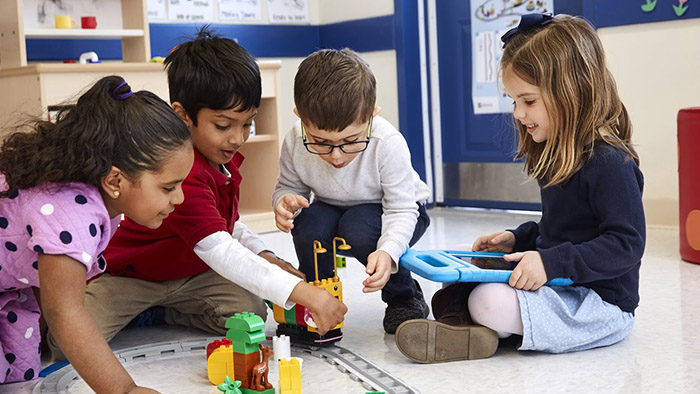
Children are hard-wired to play. However, busy schedules, homework, classes and structured activities like sports and dance classes can often get in the way of allowing kids to feel free to express that natural behaviour.
While these things are important, it’s just as important to recognise that play has a purpose in a child’s development and it’s an important consideration for parents and educators, says parenting expert and author Jessica Joelle Alexander. “Playing together is a fundamental cornerstone of family life for children and parents alike,” Alexander says. “But with modern lifestyles busier than ever and so much emphasis on formal education and structured activities, it can be easy to forget to make time for it. Given the positive effects it has on our well-being and happiness levels, family play should be the most important ‘homework’ of all.”
Whether you are planning the next outing or looking for an enriching activity, be mindful of how play has a key role in shaping and building young minds. Here are five benefits of play and how it fits in with learning.
1 It lets kids use their imagination
Playtime gives kids some space to freely explore and decide for themselves how they’ll complete a task. Offer kids playful space to create, and their innate ability to innovate can amaze you. Fostering this spirit of creativity is crucial — the World Economic Forum cites creativity as one of the top three skills the future workforce will need for success.
2 Play helps children develop in a natural way
Think of how kids learned the alphabet. You didn’t sit them in a chair and drill them on their letters — it was framed in a happy song. That illustrates how play-based learning can be a low-pressure but highly engaging way to learn.
Young people seem to have an intuitive grasp of how well this learning method works for them. Four out of five children say they learn better when play is incorporated into the activity, according to a recently released study, the LEGO Play Well Report, which surveyed nearly 13,000 parents and children in nine countries. Nearly all parents (95 per cent) see play as essential for children’s well-being and learning, and 82 per cent think children who play more will be more successful in future studies and work.
3 Play promotes happiness
Kids are naturally inclined to play, so allowing them time to play lets kids be in their natural state. The study results show a strong link between the hours spent playing together and the happiness of a family. Nearly nine in 10 families (88 per cent) that play five or more hours a week say they are happy. However, when hours of playtime are decreased to less than five hours, there’s a marked decrease in the self-reported happiness level, to three-quarters of families. But the good news for these families: It just goes to show that making an effort to add minutes of play each day makes a huge difference.
4 Hands-on, play-based learning builds connections
Many adults are concerned about how technology is affecting children’s development. Nearly three-quarters of parents (72 per cent) fear technology is dampening kids’ ability to think for themselves. However, six in 10 say they enjoy using technology when they play with their children, and that digital play brings the family closer together. Today’s kids are seamlessly blending real-world, imaginary and digital experiences, what some refer to as “fluid play.”
5 Helps children develop essential life skills
What is the ultimate purpose of play? Just observe what children do and say, and it’s clear it’s not all about escapism. Playtime helps kids understand how things work in the world and how to interact with each other. When you think of it in those terms, play gives kids a sense of mastery and boosts confidence, all the while enhancing their problem-solving abilities, communication skills and creativity, among other essential life skills.